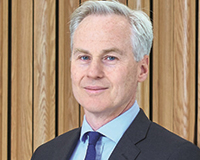 Pundits, broadcasters and forecasters, when discussing the state of the economy, all seem obsessed with one number above all others: GDP growth. It features in news headlines, politicians’ speeches and is central to most of the presentations we receive from respected economists.
Pundits, broadcasters and forecasters, when discussing the state of the economy, all seem obsessed with one number above all others: GDP growth. It features in news headlines, politicians’ speeches and is central to most of the presentations we receive from respected economists.
But why? In many respects it is a pretty esoteric concept detached from the reality of people’s everyday experiences. And as we saw repeatedly in 2016, economies can look in good shape from a GDP perspective without the supposed benefits seeping through into much of the real economy. I suspect it is because it is easy to make one figure totemic shorthand.
In reality, though, there are many different ways we could measure how we are doing as a nation and whether or not we are genuinely improving people’s lives and the long-term health of the economy.
Consider these statistics: from 1980 up until 2016, the UK economy grew on average by 2.3% pa, which is less than the 2.7% pa average growth rate from 1948 to 1980, but still has propelled the economy to just over double its size 37 years ago.
Meanwhile, over the same period, 1980-2016, UK household debt grew by more than six times and government debt has grown by more than 14 times. Nor have we had a sustained surplus on our balance of trade with the rest of the world since the late 1990s and our productivity growth has been anaemic.
I could go on. However, all of this tells you more about the current health of the UK economy than one isolated number taken out of context. This more fragmented picture of the economy, and many people’s corresponding frustration, can help to explain many of the events of 2016 and the consequential global political uncertainty we all now face.
People’s frustration is not limited to politicians. Trust in business is at an all-time low. Those of us in the real estate industry who have an interest in the long-term success and cohesion of the UK need to play our part by taking a broader view of how the economy and society functions and, therefore, the impact we have on it.
Since 2013, the Crown Estate has been working to understand how we can both better understand and communicate the broader effects of our activities, as well as those of our customers and partners, beyond just the traditional financial indicators. We have called this approach “total contribution”.
Our latest report, published this January, connects the dots between what we do and its positive and negative impact across the communities in which we operate, before tying it back to the factors that affect our performance as a business.
It is a work in progress but we are committed to developing the approach and using it to inform more resilient financial decision making. We are also working with businesses from across a wide range of sectors to create more robust metrics with the aim of eventually being able to benchmark our performance alongside others.
Perhaps, in time, economic forecasters will also start to take that broader view of the global economy rather than relying on narrow econometric models. Doing so might help them to better anticipate the sort of economic and political shock waves we have experienced during this century.
Paul Clark is chief investment officer at the Crown Estate










